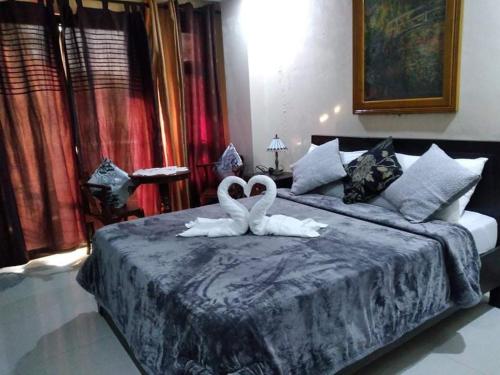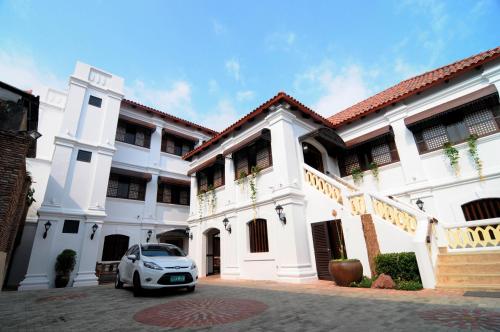Old Town, Vigan, The Philippines
By Philippines standards, Vigan is a unique example of a European colonial city. If you’re going to compare it to others around the world, though, you may be disappointed.
And so here is the conundrum I face – would I say it’s worth the visit?
Vigan was established in the 16th century, when the Spanish arrived on the islands of the Philippines and began to colonise it. Much like they had done in other places – most notably Central and South America – they built their cities in the way they were accustomed to. The European way.
So that meant a grid-like structure with main plazas and the most important public buildings around them.
Even 500 years since its founding, that’s what you still find in Vigan today. It, in fact, has two main plazas – Plaza Salcedo and Plaza Burgos. One of the city’s most prominent buildings, St Paul’s Cathedral, separates the two.
Whenever I walk through the plazas, they seem to be full of kids. It’s either little ones playing with toys under the occasional watchful eyes of their parents or teenagers having a game of basketball.
The city stretches out from here. Straight roads hit others perpendicularly. It’s hard to get lost here and, no matter how much I wander, I always seem to end up back at something I recognise.
It helps that the main street through the most historic part, Calle Crisologo, is cobbled and closed to traffic. It stands out and makes for a perfect navigation tool.
Most of the buildings in Vigan aren’t from the original 16th century period. The majority were built in the 1700s or 1800s. There are some beautiful pieces of architecture among them and these offer some of the most interesting sights in the old city.
Although it may have been the Spanish who set up the city, they didn’t really live here. It was actually mainly people of Chinese origin who filled the city of Vigan in the earlier years and their influence can be seen in this architecture.
The facades on the ground floor appear European – but when you tilt your head upwards, you’ll realise the upper levels look different.
Up there, the Chinese influence comes through. It looks like the classic Oriental roof, the top of a pagoda perhaps.
This, as I say, I find interesting. Beyond that, I’m unsure exactly what I think.
Vigan is a World Heritage Site and is described by UNESCO as “the best-preserved example of a planned Spanish colonial town in Asia”.
There’s not a huge amount of competition really. Outside of the Philippines, I think the only other places Spain had in Asia during the colonial centuries were Guam, Micronesia, a bit of Taiwan and a bit of Indonesia.
Vigan was also chosen as one of the cities for the ‘New 7 Wonders’ cities campaign and it’s a fact proudly displayed here.
Let’s be clear, though. This title is awarded by a marketing company that charges countries to be involved and for the right to use the title in promotions.
It is also based mainly on an online voting system, not any kind of independent assessment – and we all know how active the Filipinos can be on social media.
Personally, I place absolutely no weight at all on a ‘competition’ like this. However, if you really think Vigan is one of the 7 best cities in the world, then we can have a discussion about how authentic this campaign is.
So let’s have a look at Vigan on face value.
As I’ve already mentioned, there are quite a few older buildings here that have wonderful architecture and design. Most of the ones along the main street are now being used for tourist services (hotels, restaurants, shops) but you can easily just go a block or two away and find ones still being used as homes or for local businesses.
What you’ll also find in the side streets, though, are buildings in various states of disrepair. Some have been abandoned, some just neglected. For every few grand old houses, there’ll be one fenced off with broken windows and no inhabitants.
Perhaps we shouldn’t compare Vigan to other Spanish colonial cities in Latin America. Some might suggest it is better to compare it to other trading cities of the same era in Asia. So, ok, let’s compare it to Hoi An in Vietnam.
There are quite a lot of similarities in the design and the architecture, so I think it’s a fair comparison. However, the big differences that I see are in the preservation and the atmosphere.
Hoi An has been much better preserved and the city has a consistent level of authenticity, unlike Vigan which is a little bit piecemeal.
And in terms of atmosphere, Hoi An is a much more pleasant place to spend a few days, to sit in the restaurants and cafes, do some shopping, and watch a bit of life go by. There are no fast food chains in Hoi An – compare that to Vigan where most of the major chains are directly on the plazas.
I posed the question at the start of the article – would I say Vigan is worth the visit?
Well, I know that it’s a popular destination with domestic tourists and for them (and tourists from other Asian countries), it probably is worth it because a European-styled city is quite unique and different in this part of the world. There really isn’t anywhere else in the Philippines like this and that makes it worthwhile.
However, for international tourists, I think there are much more interesting and beautiful options for things to do in Philippines. It’s a wonderful country with 7000 islands and your time would be better spent elsewhere.
If you are travelling through this area, definitely stop for a night and see it for yourself because it is certainly not without merit. But I don’t think it is worth any special effort to go out of your way to visit.
THE BEST ACCOMMODATION IN VIGAN
Although the city isn’t large, the best places to stay in Vigan are close to the historical centre, amongst the heritage architecture.
BACKPACKER

Right on the main tourist street, Escolta’s Homey Lodge is a friendly guesthouse in a heritage building.
BUDGET

With an affordable room rate, you get a lot of space at Hilfrans Lodge, which is also close to the tourist spots.
APARTMENT

Many of the spacious apartments at The River House have beautiful views, and there’s a lovely restaurant on site.
BOUTIQUE

To truly appreciate the history, Hotel Veneto de Vigan offers a Spanish colonial theme in a convenient central location.
I’m a bit of a fan of out-of-place sites like the Seville-inspired Plaza of Kansas City so I’d definitely give Vigan a go!
Vigan looks like a very interesting city to visit. Great pictures! Thanks for sharing your thoughts about this unique city.
Thanks for your honest review. I wanted to go here, but due to time restraints have taken it off my visit list. I no longer feel like I will be missing out on too much though,
You really help me choose the right place to visit! I am heading there in 2 weeks. Looking forward to discover Vigan when I go there! Thanks a lot for sharing!
Awesome! I’ve been to Vigan twice and it’s still the same feeling like it was the first visiting the place. You should try visiting Pagudpod and Laoag, these are the places near Vigan and they have a great places to offer as well.
Thanks so much for the post…very helpful. Think I can give it a miss and spend my time elsewhere!
I just got back from the Philippines and was unsure whether or not we should go to Vigan. We eventually decided that we wouldn’t and now that I’ve found your post I think that was the right decision. My partner loved Hoi An previously, but I didn’t – it felt like it had lost some of its soul to tourism I thought – so if that is even more so in Vigan I’m glad we didn’t go out of our way to get there.
I think if Vigan was much closer to Manila it would be more attractive for tourists to travel. It’s just very far from Manila and it isn’t near the popular beautiful beaches or natural sites. I wish the city does more restoration and tries to improve it’s quality because even if it isn’t the best old city it arguably has the best collection even in the Philippines, though Manila probably has a better case.
I did visit city in December 2019 it a quiet and clean streets made of cobblestones, would to visit again.